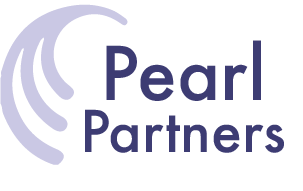Last week I gave a talk in a class called Organizing for Innovation and Design, taught by Siobhan O'Mahony at Boston University. At the start of the class, I asked the students if there were any topics they wanted to cover specifically. They had read my bio, and checked out this blog, and one of the students wanted to understand the "method to my madness" in terms of my diverse educational background. They also were interested in my thoughts about continuing directly to grad school vs working before continuing their education.
During the course of my talk and Q&A, I managed to cover most of my thoughts on the multidisciplinary background – we were calling it the "patchwork education." In short, I feel that it is important to understand how different disciplines need to work together, and I felt I needed to learn about several of them in order to make better connections between them. My fields of study were engineering, design, and business, and rather than jumping between them, I fuse them together every day. Don't get me wrong, subject matter expertise is important, but innovation is not very successful when attempted by groups that live in isolated silos. Innovation requires making connections between seemingly disconnected disciplines.
By the end of the talk, I realized that I hadn't covered all the questions, so I sent Prof. O'Mahony an email with my follow-up responses, which included these thoughts on the multidisciplinary education question.
I would always recommend working before pursuing graduate education. My undergraduate curriculum was very multidisciplinary. If I hadnt worked before pursuing my graduate degrees, I would have been blissfully unaware that most companies do not work in such a multidisciplinary way at all. Learning to navigate the silos, and exploring ways to bring them together was important in my MBA independent study thesis, which I would have missed out on if I hadnt worked! This is how an education that appears to be a patchwork, actually becomes a quest to more fully pursue your passion.
Also, in terms of learning to combine creative problem solving and critical thinking skills, I would be remiss if I didnt recommend taking a course or two in English Literature and/or Social Anthropology. My undergraduate minor was in English Literature, and in terms of learning how to discern what consumers mean from what they say, it was invaluable. In courses where you are expected to critically analyze the literature, you are learning to articulate the motivations of the characters beyond what is written, and to understand how the author is using language to create a mood or feeling. With Social Anthropology you are doing the same thing in terms of understanding cultures through their artifacts. The most important thing we can do through in-depth consumer interviewing is to develop an understanding that is deep enough that we can anticipate a consumers likely response to stimulus. (By stimulus I mean a new feature or product introduction, a competitors likely action, etc) You just dont learn that in traditional Market Research sorry!
I would love to hear from others who have pursued similar paths. One thing I know we will all have in common is that our experience in creating our own educational path serves us well as we connect seemingly disconnected silos in our careers!
